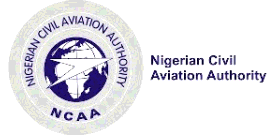 NCAA’s Visa Crackdown: Protecting Passengers, Empowering Travel Agents
NCAA’s Visa Crackdown: Protecting Passengers, Empowering Travel Agents
The Nigeria Civil Aviation Authority (NCAA) has issued a stern warning to international airlines: ensure your passengers have the correct visas, or face the consequences. This decisive action aims to protect travelers and uphold Nigeria’s aviation reputation, while also presenting opportunities for proactive travel agents.
The NCAA’s warning comes in response to a surge in passenger deportations at transit points. Travelers unaware of specific visa requirements have faced distressing situations, leading to disruptions, financial losses, and reputational damage for the Nigerian aviation sector. The NCAA is determined to put a stop to this, holding airlines accountable for ensuring passengers are fully informed and prepared for their journeys.
The Nigeria Civil Aviation Regulations 2023 (Part 19.21.1.1) clearly outlines the airlines’ responsibilities. Carriers must provide passengers with accurate and up-to-date information on travel and visa requirements before issuing tickets or allowing boarding. This includes verifying that travelers meet all entry conditions for their final destination and any transit points along the way.
The penalties for non-compliance are substantial. Airlines failing to meet these obligations risk hefty fines, suspension of operations, and other regulatory actions. The NCAA is sending a clear message: passenger well-being and adherence to regulations are non-negotiable.
This crackdown presents a unique opportunity for African travel agents to shine. By proactively educating themselves on the latest visa regulations and ensuring their clients are fully informed, agents can differentiate themselves and build trust. This proactive approach not only protects travelers from distressing situations but also enhances the agent’s reputation as a reliable and knowledgeable travel advisor.
The financial implications of deportations are significant. Airlines face substantial costs associated with ticket refunds, return flights, accommodation, administrative fees, NCAA penalties, and potential legal battles. The reputational damage can be even more costly, impacting future bookings and brand image. For travel agents, each deportation incident can lead to lost commissions, administrative headaches, and strained client relationships.
The computational analysis below illustrates the potential financial impact of passenger deportations. The costs can quickly escalate, reaching tens of thousands of dollars per incident and potentially millions annually, depending on the number of cases. These figures underscore the importance of proactive measures to prevent such incidents.
Beyond the immediate financial impact, deportations can severely damage customer satisfaction. Travelers who experience such disruptions are likely to share their negative experiences, impacting public perception and potentially deterring future bookings. Maintaining high customer satisfaction is crucial for the travel industry, and preventing deportations is a key factor in achieving this goal.
So, what can travel agents do to navigate this new landscape? Firstly, stay informed. Regularly check the latest visa requirements for all destinations and transit points. Utilize reliable resources such as the IATA Travel Centre and government websites to access up-to-date information. Secondly, educate your clients. Provide clear and concise information on visa requirements, ensuring they understand the necessary documentation and procedures. Consider offering pre-travel consultations to address any questions or concerns.
Partnering with airlines that prioritize compliance is also essential. Choose airlines with robust verification systems and a commitment to passenger well-being. By working together, travel agents and airlines can create a seamless and stress-free travel experience for all passengers.
The NCAA’s crackdown on visa violations is a positive step towards a more secure and reliable travel industry in Nigeria. By embracing a proactive approach, travel agents can not only protect their clients but also enhance their own professional standing. In this evolving landscape, knowledge is power, and informed travel agents are best positioned to thrive.
